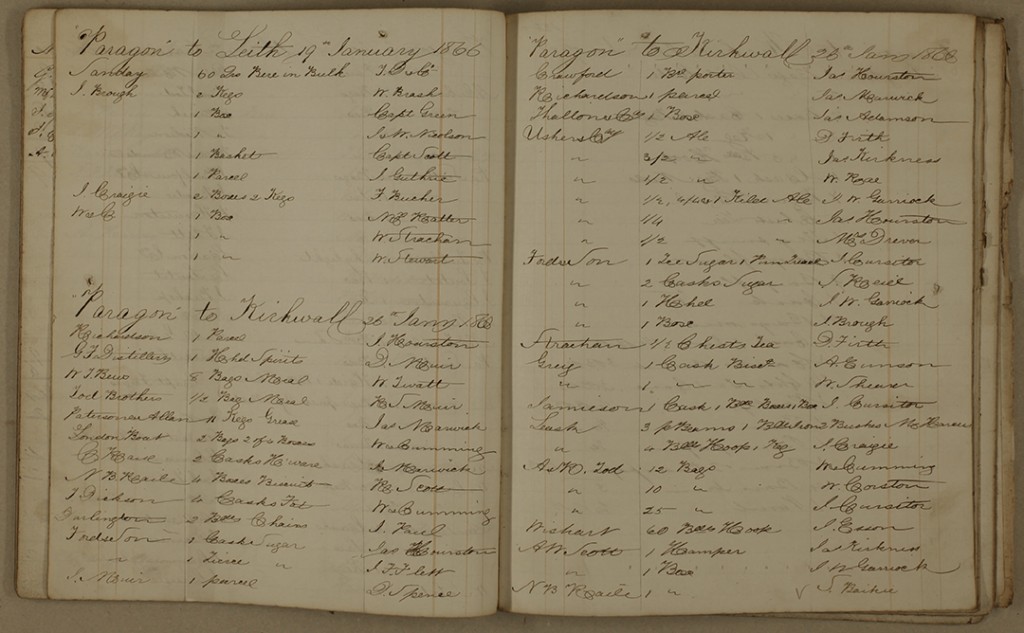Archivist Chris Lambert tells us about his choice for the first Document of the Month of 2016.
This month’s choice is an unusual document that reached us recently from a local house clearance, thanks to some alert neighbours (Acc. A14346).
What they rescued was a small bag of account books relating to a farming business at Little Saling, near Braintree. Amongst them was this exercise book, apparently bought in Leith, the port for Edinburgh, and used to keep accounts for the coastal trade, mainly in the 1860s. This opening relates to a vessel called the Paragon, which in January 1866 made what seems to have been a regular run between Leith and Kirkwall in the Orkney Islands. Many packages are not itemized, but with the names of both the sender and the consignee we still get a good picture of trade in the outer islands of Britain. On this voyage, the Orknies took considerable quantities of Usher’s ale, tea, sugar, biscuits, and a hogshead of spirits.
And just what is this document doing in Essex? A loose note of 1880 gives us the clue, referring to J.D. Rendall of ‘Breckaskaell’ (the modern Backaskaill on the Orkney island of Papa Westray). In about 1889, John David Rendall – born on Westray around 1836 – moved himself, his wife and children to Little Saling in Essex, buying Gentlemans Farm from its absentee owner. Rendall himself died in 1904, but his family stayed on the farm, part of that wave of Scottish farmers who helped to revive Essex agriculture after the depression of the late 19th century.
Intriguingly, some other loose papers list ‘kelp made on the shores of Narness’, 1875-?1887. The use of fertiliser made from seaweed was hardly an option at Little Saling, but an interest in unconventional methods, and an eye for new opportunities, were just what Essex agriculture needed.
The book will be on display in the Searchroom throughout January 2016.

